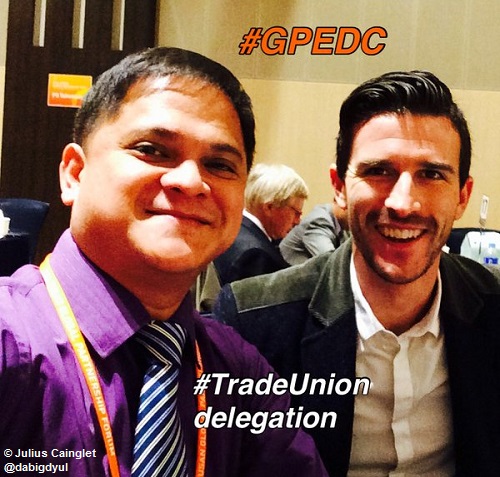
by Matt Simonds, TUDCN/TUAC
The 2nd Busan Global Partnership Forum took place in Seoul, South Korea on 23–24 November 2015. The forum convened many of the different stakeholders who are part of the Global Partnership for Effective Development Cooperation, including from civil society and the trade union movement.
The forum was organized along three broad themes over the course of two days: Implementation of the Agenda 2030, Partnering with Private Sector and Development Effectiveness in Fragile States.
Among these themes the most valuable discussion emerged from the session on Implementation of the Agenda 2030 as it brought participants to have an inward reflection on the role of the GPEDC. Feedback from participants in the meeting was encouraging in that there appeared to be a shared sentiment that the GPEDC would best serve the international development community by strengthening its focus on the core aid and development effectiveness agenda. Namely, reigniting efforts to meet commitments made in Rome, Paris, Accra and Busan to cement a strong institutional identity for the GPEDC and regain some much needed momentum for the process.
The session on private sector served primarily to showcase different initiatives where donors worked with private sector. An interesting point to highlight for the session was, that apart the panellists who had been invited, no private sector representatives were present at the forum, something that was emphasized by one of the panellists. Engaging with the private sector in these debates is still a work in progress.
There is still a long way to go in the fragile states context when it comes to the implementation of development effectiveness principles, especially as relates to inclusive development and the CSO enabling environment. There is still a great deal of scepticism towards civil society in these contexts, despite the positive role that civil society can play in transition efforts.
While this year’s forum proved to be less concrete than the previous years it remains an important venue for the different stakeholders of the GPEDC to meet face to face to share ideas and experiences to improve development cooperation.
More information about the 2nd Busan Global Partnership Forum

